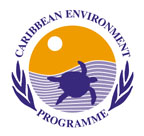
Caribbean Action Plan (CAR)
Search Open Yearbook
This information is part of the Open Yearbook, a free service of UIA's subscription-based Yearbook of International Organizations (YBIO). It includes profiles of non-profit organizations working worldwide in all fields of activity. The information contained in the profiles and search functionality of this free service are limited.
The full-featured Yearbook of International Organizations (YBIO) includes over 77,500 organization profiles, additional information in the profiles, sophisticated search functionality and data export. For more information about YBIO, please click here or contact us.
The UIA is a leading provider of information about international non-profit organizations. The aim of the Open Yearbook is to promote the activities of international non-governmental organizations (INGOs) and intergovernmental organizations (IGOs).
Contact Details
URL: https://www.unep.org/cep/who-we-are
Founded
1981-04-06 Montego Bay Jamaica
History
Available with paid subscription only.Aims
Assist governments of the region to prevent and control environmental degradation by: promoting environmental management policies for each nation, based on the sustainable development of the region's resources; promoting cooperation among Caribbean governments in environment-related issues; providing technical assistance to countries of the region, especially smaller island countries; fostering technical cooperation and common efforts to resolve transnational and international problems; fostering improvement of environmental impact assessment capability; strengthening national and subregional institutions, including capabilities for improving environmental health services; assisting implementation of watershed management guidelines; preventing or minimizing effects of natural or man-made disasters, including a regional oil spill contingency plan; increasing public interest in, and awareness of, the environment-development relationship.
Events
18 past events available with paid subscription only.Activities
Available with paid subscription only.Structure
Available with paid subscription only.Languages
Available with paid subscription only.Finance
Available with paid subscription only.Relations with Inter-Governmental Organizations
Instrumental in setting up: E-XE3347 - Regional Marine Pollution Emergency Information and Training Centre - Wider Caribbean (REMPEITC-Carib). International organizations participating in the development and implementation of the Plan:
- D-XD4036 - Association of Caribbean States (ACS);
- D-XD4579 - Caribbean Community (CARICOM);
- D-XD1294 - Caribbean Tourism Organization (CTO);
- D-XD2685 - Comisión Permanente del Pacifico Sur (CPPS);
- B-XB0971 - FAO;
- E-XE9569 - FAO Regional Office for Latin America and the Caribbean (FAO/RLC);
- F-XF2335 - Global Environment Facility (GEF);
- F-XF1069 - Inter-American Development Bank (IDB);
- E-XE1118 - Intergovernmental Oceanographic Commission (IOC);
- F-XF1393 - International Bank for Reconstruction and Development (IBRD) (World Bank);
- H-XF6866 - International Coral Reef Action Network (ICRAN);
- B-XB1117 - International Maritime Organization (IMO);
- D-XD3030 - OAS;
- E-XE3060 - Pan American Health Organization (PAHO);
- G-XG6910 - Swedish International Development Cooperation Agency (Sida);
- E-XF4511 - Centro Agronómico Tropical de Investigación y Enseñanza (CATIE);
- E-XE3382 - UNDP;
- B-XB3383 - UNESCO;
- E-XE4175 - United Nations Economic Commission for Latin America and the Caribbean (ECLAC);
- F-XF7988 - University of the West Indies (UWI);
- B-XB3556 - World Meteorological Organization (WMO).
Links with:
- U-XK0126 - Caribbean Coastal Marine Productivity (CARICOMP);
- F-XF4023 - Caribbean Development Bank (CDB);
- E-XF1464 - Comisión Centroamericana de Ambiente y Desarrollo (CCAD);
- E-XE8300 - Secretariat of the Pacific Regional Environment Programme (SPREP);
- G-XG2898 - United States Agency for International Development (USAID).
Relations with Non-Governmental Organizations
International organizations participating in the development and implementation of the Plan: B-XB1722 - BirdLife International; D-XD4292 - Caribbean Conservation Association (CCA); A-XA2654 - International Union for Conservation of Nature and Natural Resources (IUCN); G-XG0833 - The Nature Conservancy (TNC); F-XG7799 - United Nations Foundation (UNF). G-XG2994 - Whale and Dolphin Conservation (WDC); E-XE1495 - World Resources Institute (WRI). Links with: F-XE0600 - Caribbean School of Media and Communication (CARIMAC); G-XN0164 - Environmental Defense Fund (EDF); E-XF2089 - Panos Network.
Publications
Available with paid subscription only.Members
Available with paid subscription only.Type I Classification
Available with paid subscription only.Type II Classification
Available with paid subscription only.Subjects *
UN Sustainable Development Goals **
UIA Org ID
XF1971
** UN SDGs are linked to the subject classification.
← return to your search page to find additional profiles.
UIA allows users to access and make use of the information contained in its Databases for the user’s internal use and evaluation purposes only. A user may not re-package, compile, re-distribute or re-use any or all of the UIA Databases or the data* contained therein without prior permission from the UIA.
Data from database resources may not be extracted or downloaded in bulk using automated scripts or other external software tools not provided within the database resources themselves. If your research project or use of a database resource will involve the extraction of large amounts of text or data from a database resource, please contact us for a customized solution.
UIA reserves the right to block access for abusive use of the Database.
* Data shall mean any data and information available in the Database including but not limited to: raw data, numbers, images, names and contact information, logos, text, keywords, and links.